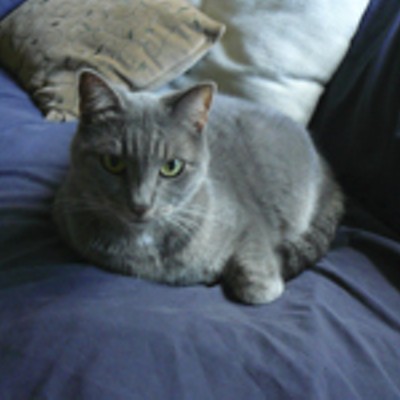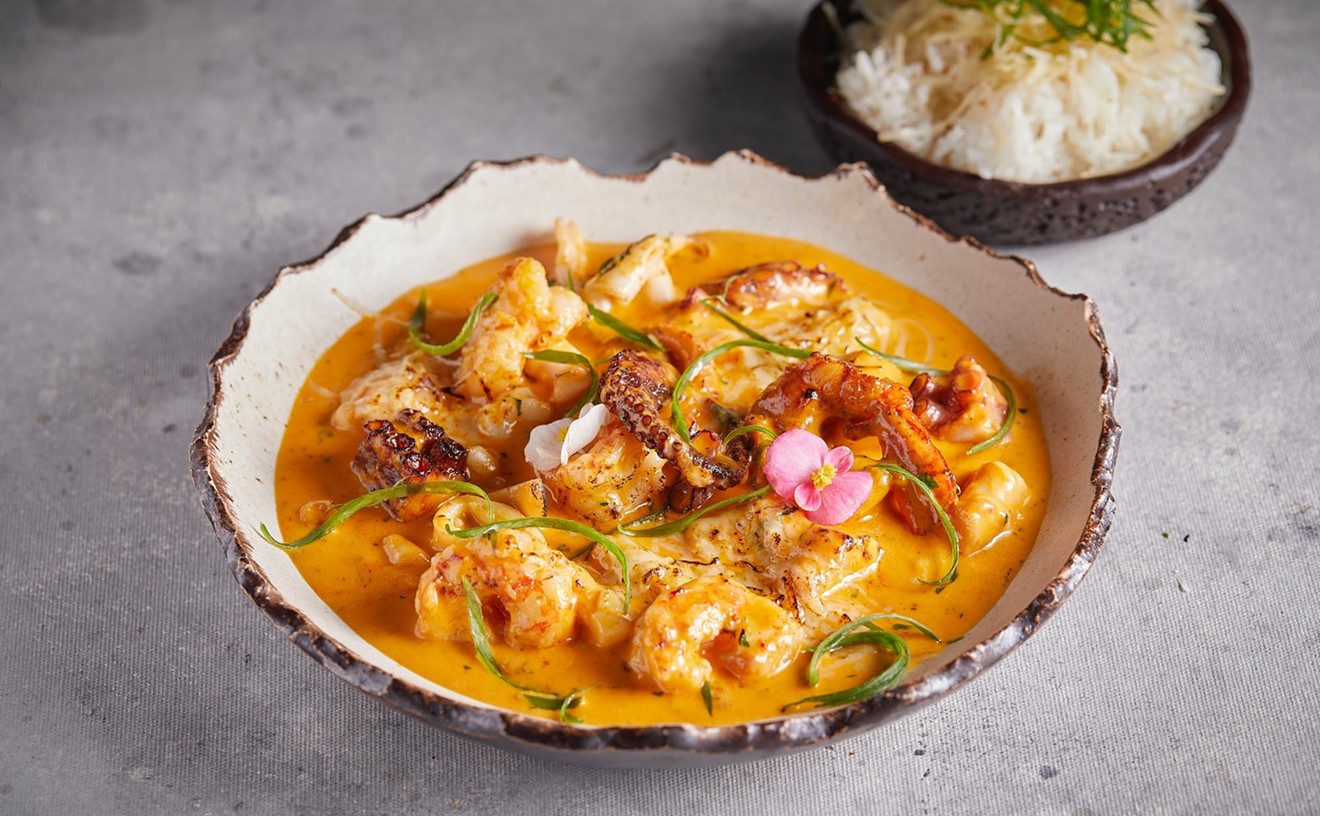Parts of the minimal menu are more reminiscent of the U.S. than Iran — items such as caesar salad, sautéed vegetables with alfalfa sprouts, and a veggie melt sandwich with Provolone and American cheeses. Rice and kebabs, however, are immersed in Persian influences. Or at least immersed in sumac, which lent its sprightly astringency to the three grilled meats featured in the Super Combo Kabob: moist cubes of chicken, juicy hunks of beef tenderloin, a long sausagelike strip of ground beef enhanced with spirited spicing and minced onions (kubideh), and two wedges of grilled, unseasoned tomatoes. We also tried the fish kebab, comprising five fresh pieces of muscularly marinated swordfish and a few squares of grilled onions.
Kebabs come with choice of flatbread, salad, or rice; prices range from $6 to $10 if paired with the bread, $7 to $11 if served with either of the last two options. But if a customer desires, say, salad and bread, or rice and salad, he or she would have to order one à la carte. Rice brings a mound of basmati with a racing-stripe of saffron. It was a little on the dry side but not nearly as disappointing as the wheaty pitalike bread that is pulled from a tandoori in full display behind the counter. Unfortunately the hard rounds on our plates were apparently pulled from the oven about a month ago. On a return visit, the bread was slightly more pliable but still unpleasantly crackerlike.
The other specialty of the house is rice, which is prepared three ways: zereshk, with cranberry-ish barberries and saffron; baghali, with dill and baby lima beans; and adas, with lentils, saffron, and currants (supposed to be golden raisins). A main-course portion of rice goes for $4.99, and is, quite frankly, boring; better to try this as a side ($1.99).
Counter service is pleasant but not necessarily competent. On one occasion, when I was taking food out, they neglected to pack an order of hummus. And stuffed grape leaves. And a bottle of doogh — a Persian beverage made with milk, sea salt, and powdered mint. When I arrived home and realized they were missing, I phoned to let the manager know. He apologized and gave me all three items when I returned some days later. The hummus was light and lemony, but rice-filled dolmeh seemed to have been saturated in brine solution too long. Doogh will best be appreciated by those who have already acquired a taste for salty beverages. Plenty of kinks need to be ironed out around here, but Rice House of Kabob does cook up a tasty kebab.
I'm afraid the same cannot be said for Hakan Turkish Grill, located three blocks South of Rice on Alton Road (formerly the site of Dab Haus). Shiny, wood-stained fiberglass tabletops and cushioned, wicker-back chairs occupy the center and left side of the storefront dining room, while the right is taken up by a bulky wood bar over which hangs a sizable evil eye (an omnipresent symbol in Turkey) and large plasma TV screen (the American equivalent of the evil eye). Dangling cloth draperies section off the seating and contribute a degree of intimacy, but a stark drop ceiling and white tile floor sandwich the space in cold fashion. The cuisine has problems of its own concerning highs and lows — namely not enough of the former and too many of the latter.
Things began well enough with a mixed meze of conventional Turkish appetizers, the components of which will be familiar to fans of Mediterranean and Middle Eastern cuisine. Centering the plate was a square ramekin of white bean salad flavored with olive oil, vinegar, and flecks of scallion, green pepper, black olive, and tomato. It is not a particularly exotic dish, and certainly will not conjure images of dinner tables in Istanbul, but it was zesty enough, and had it contained hard-boiled eggs would have been an authentic fasulye piyazi. Other items on the platter were similarly clean and satisfying, such as charred eggplant dip; rice-stuffed grape leaves; and a red caviar-yogurt spread (tamara) whose inherent fishiness was effectively cut with lemon juice and vinegar. The only letdown here was coarsely textured hummus that tasted mostly of chickpeas. The high point was fluffy homemade pita bread, warmed and smoked on the grill.
Grilled meats and kebabs make up most of the main courses, and again we sampled an assortment — only this time with grimmer results. Our "variety grill" displayed a thin, desiccated lamb chop; dryly cooked cubes of lamb kebab; an overcharred, juiceless cylindrical patty of seasoned ground beef and lamb (from the adana kebab); and relatively moist squares of chicken breast. Basmati rice came studded with garbanzo beans but was bland, cold, and clumpy. The same sad grains accompanied etli kuru fasulye, a lamb and white bean stew with soft, succulent cubes of muttonlike meat in a tomato-based broth. A parsimoniousness of beans and vegetables, however, made the dish more soup than stew. Most entrées run $13.95 to $16.95, which is not expensive, but in light of the cuisine's quality, certainly cannot be considered a bargain. Service didn't add any intrinsic value to dinner, either. Main courses were brought while we were still working on appetizers, water glasses went unfilled, getting the check took too long, and we were just generally unattended to. The staff was inept even by South Beach standards.
Shredded wheat threads of phyllo dough (kadayif), baked with butter and walnuts and soaked in sugar water, will appeal to those who enjoy baklava. "Baked rice pudding" won't impress anyone. Unlike the real, bronze-crusted Turkish treat, this thin, all-white rendition did not seem baked at all and was flavorless excepting the dash of cinnamon powder on top. Hakan Turkish Grill features live belly dancing Wednesday, Friday, and Saturday nights, but I don't hold that against them.











